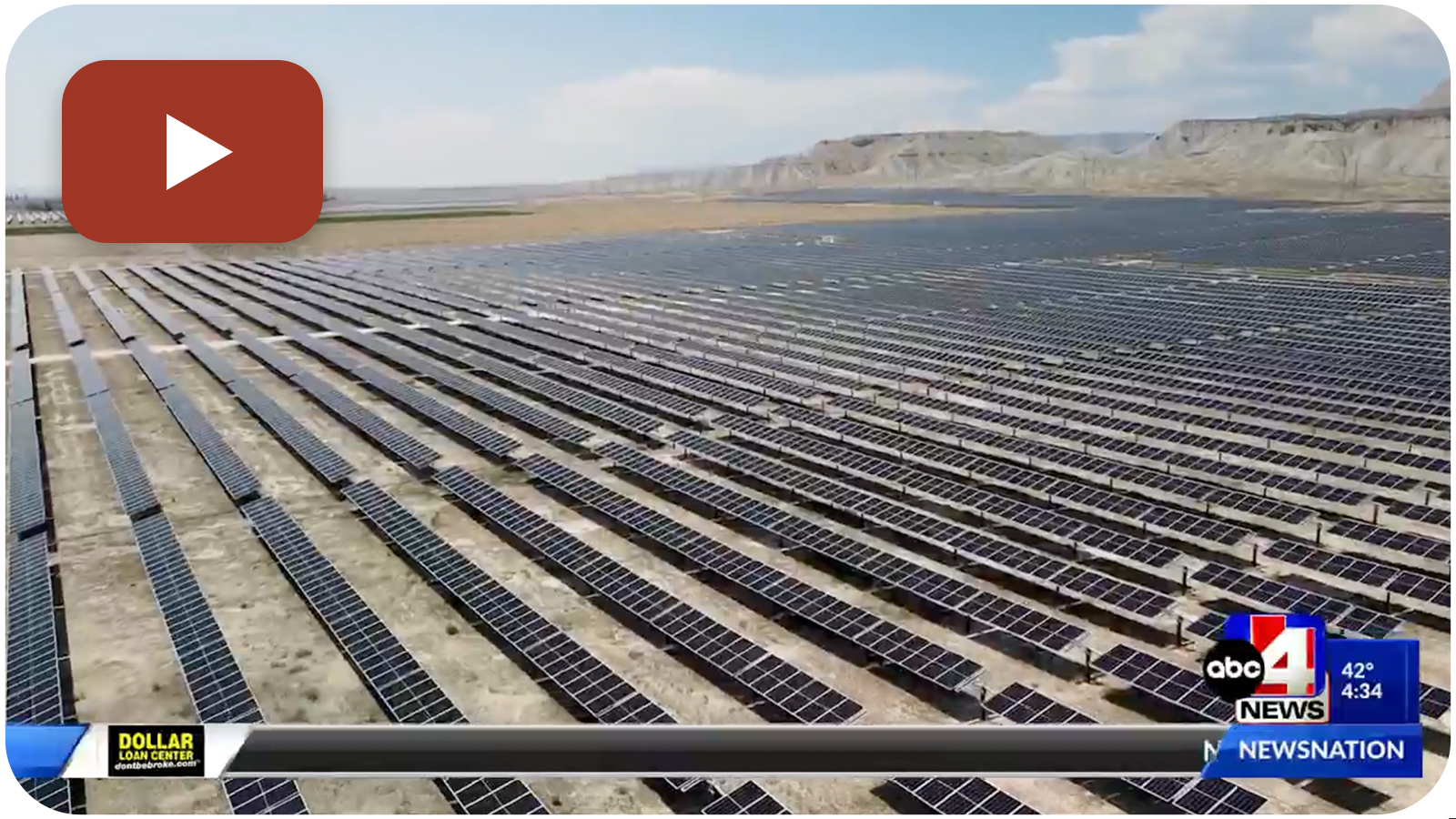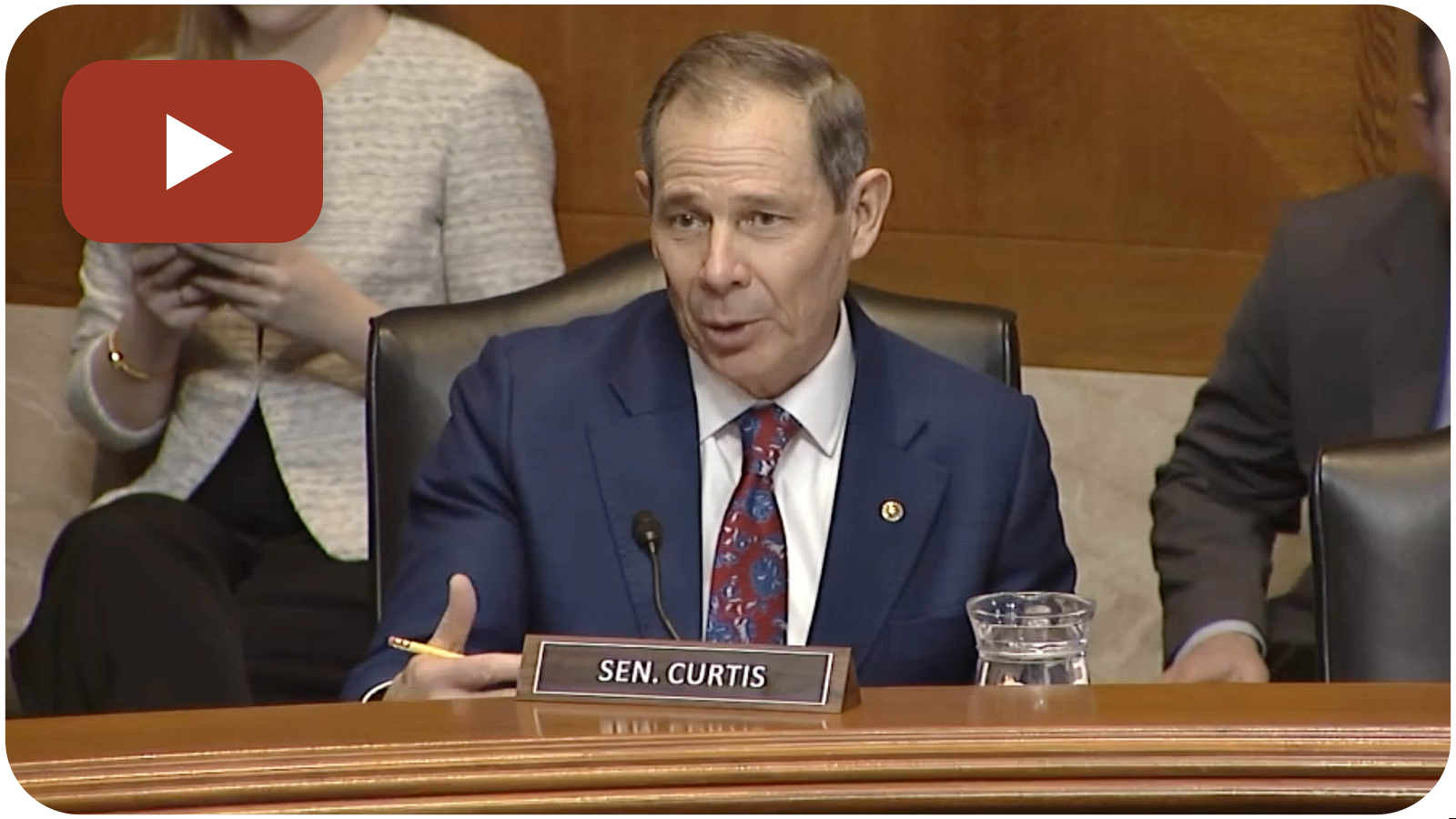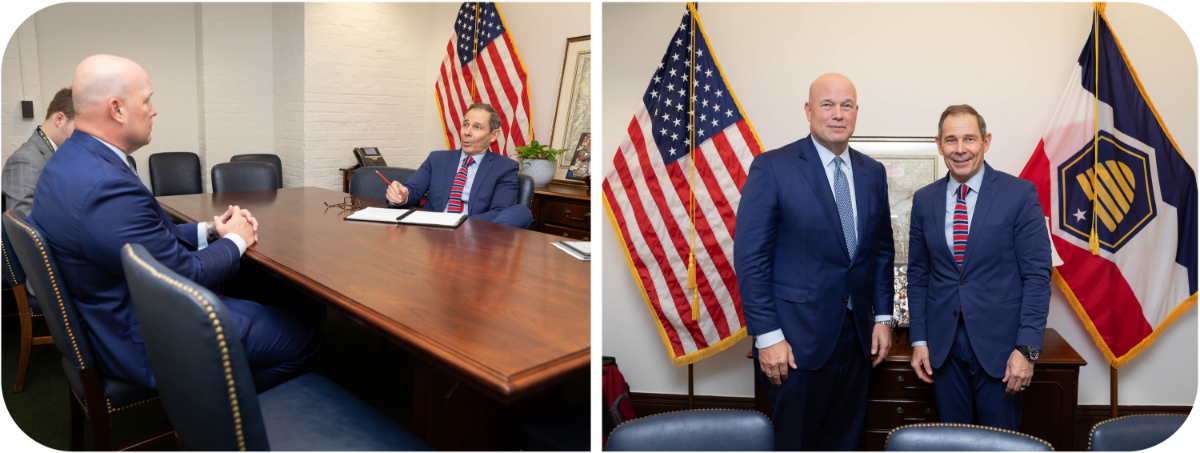|

It’s becoming increasingly difficult to raise a family, due in large part to the high cost of child care. Quite frankly, parents deserve better. Senator Curtis joined Senators Britt (R-AL) and Kaine (D-VA) and a bipartisan, bicameral group of lawmakers, in introducing the Child Care Availability and Affordability Act—legislation to help working families by reducing the financial burden of child care and incentivizing businesses to invest in child care benefits for employees.

Full story by Cami Mondeaux here.

Innovation and efficiency are critical to meeting energy demands and reducing emissions. Senators Curtis and Hickenlooper (D-CO) introduced the Co-Location Energy Act, bipartisan legislation that takes a forward-thinking approach to unlock renewable energy potential. By allowing wind and solar projects to be co-located on existing federal energy leases, the bill provides a streamlined framework for developers to evaluate and build projects on already-disturbed federal lands with the consent of the current leaseholder.


Hezbollah is directly responsible for the murder of hundreds of Americans. For too long, this Iranian-backed terrorist group has used Latin America as a safe haven for illicit financing, recruitment, and other criminal activities—fueling drug trafficking at our southern border and posing significant threats to our national security. Senator Curtis, Chair of the Foreign Relations Western Hemisphere Subcommittee, and Senator Rosen (D-NV) introduced the No Hezbollah in Our Hemisphere Act, bipartisan legislation to direct the U.S. Department of State and other federal agencies to assess and counter Hezbollah’s influence in Latin America.

Due to Utah’s dry climate, water conservation is essential to preserving our way of life. While households and communities have made significant strides in improving water efficiency, the federal tax code has yet to catch up in supporting these investments. Senators Curtis, Padilla (D-CA), and Hickenlooper (D-CO) reintroduced the Water Conservation Rebate Tax Parity Act, bipartisan legislation that would exempt homeowners from paying income tax on rebates received from utilities for water conservation and runoff management improvements.


Utah’s unique geography requires a nuanced approach to improving air quality—something that Washington hasn’t always understood. Approximately 80% of the state’s ozone comes from Earth's surface or from outside of the region—so Utahns only control 20% of the ozone in the area. Senator Curtis secured commitments from President Trump’s EPA nominees to collaborate with Utah officials and stakeholders to address the state’s unique geographic challenges in meeting federal air quality requirements.


Hardworking Americans deserve to know how and where their tax dollars are being spent, yet records concerning a $42 billion broadband deployment program remain off-limits to the public. What’s worse—the program has yet to connect even a single household to the internet since it started in 2022. Senator Curtis joined Senator Scott (R-FL) and six of their Senate Republican colleagues in introducing the Broadband Buildout Accountability Act, legislation aimed at increasing accountability and transparency for the billions of taxpayer dollars allocated for broadband expansion under the Infrastructure Investment and Jobs Act.

For decades, the transatlantic Alliance has been vital to national and global security. This week, Senator Curtis was appointed to the Senate NATO Observer Group, which monitors defense spending commitments, military upgrades, and threats to America and its European allies. Curtis met with Matthew Whitaker, nominee for U.S. Ambassador to NATO, to discuss these priorities and hear his commitment to the Alliance.


The Biden Administration repeatedly sought to close off public lands from Utahns and all Americans. Senators Curtis and Lee (R-UT) introduced a resolution that rescinds a ban on off-road vehicles in Glen Canyon National Recreation Area—a step to ensure that public lands remain accessible for the people, not dictated by Washington bureaucrats. In less than an hour, the resolution received enough signatures to be considered on the Senate floor for a vote.

|